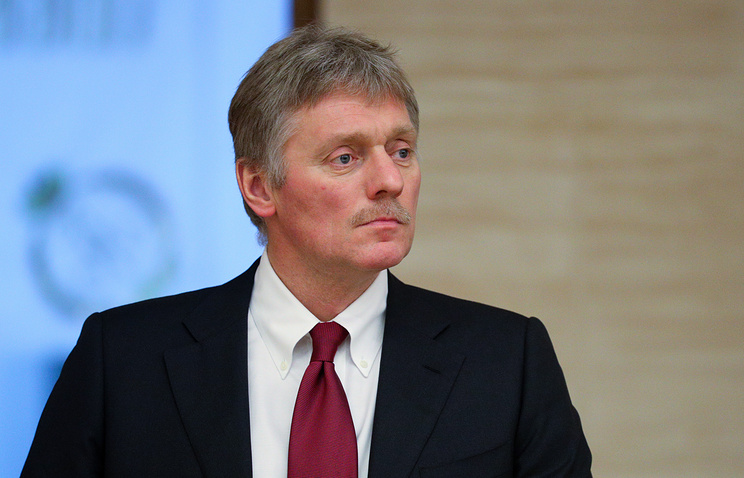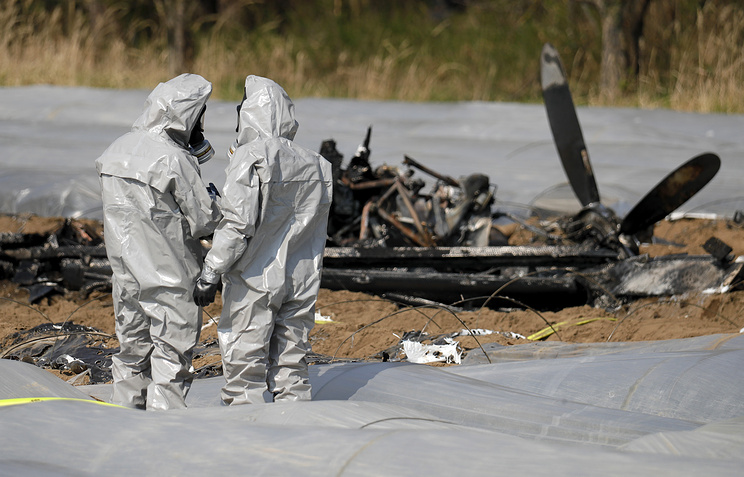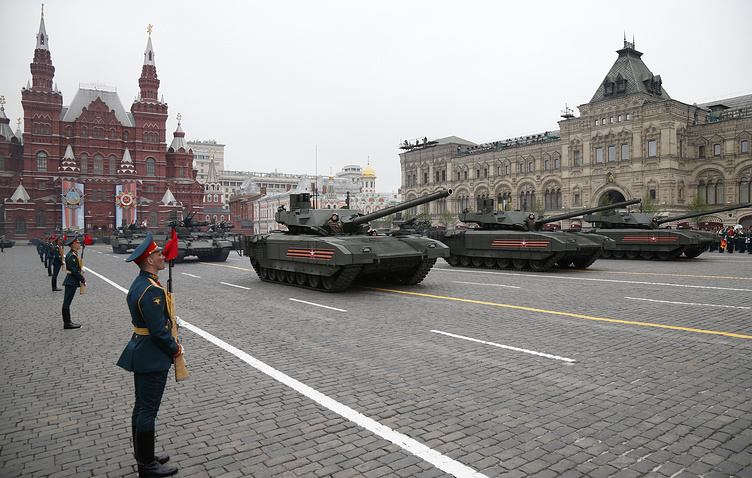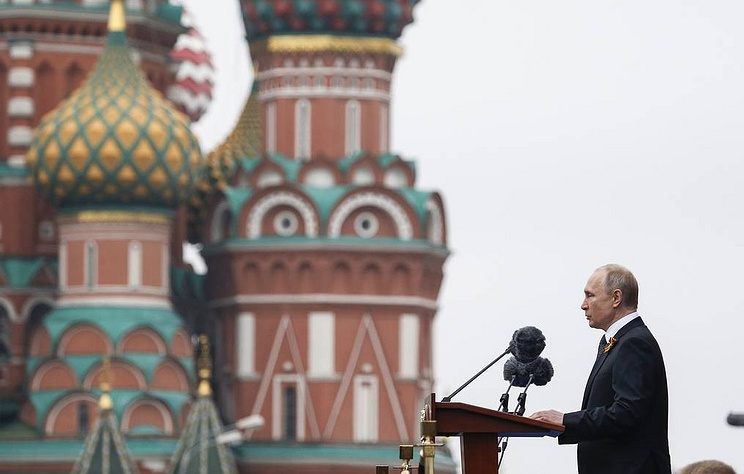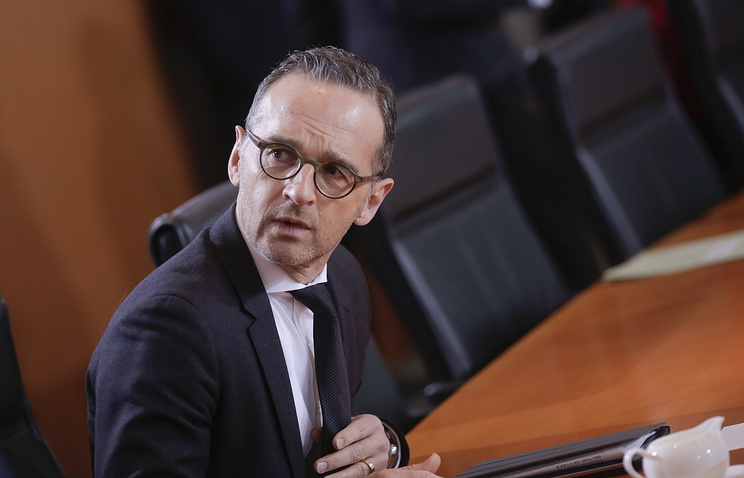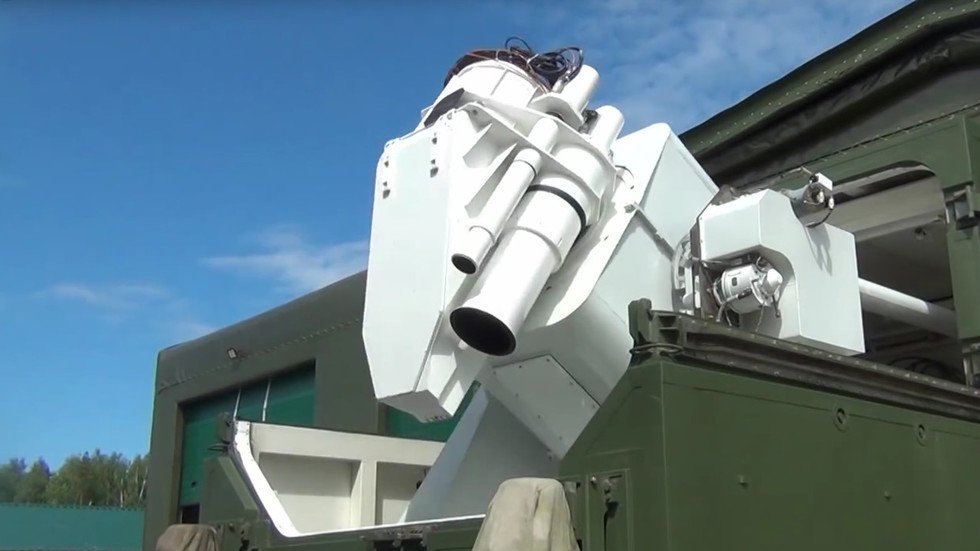Ministers agree way for Russia to rejoin Europe's human rights body May 17, 2019
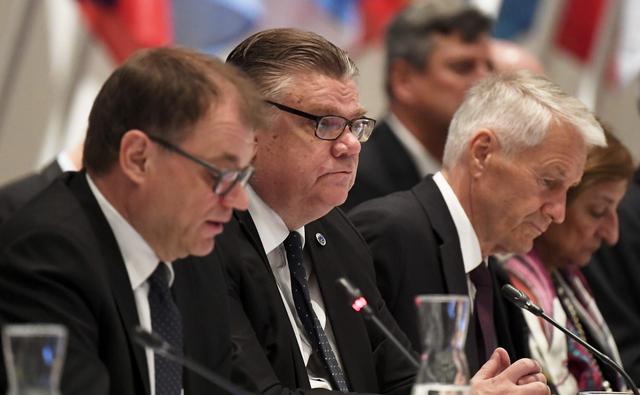
Foreign ministers from the Council of Europe, the continent's chief human rights watchdog, reached an agreement on Friday that opens the way for Russia to return to the organization, resolving a dispute that began after Moscow's seizure of Crimea.
Conditions created for Russia’s return to PACE — diplomatic source May 17, 2019
Conditions have been created for the return of Russia’s delegation to the Parliamentary Assembly of the Council of Europe (PACE) but the final decision about participating in PACE’s June session will be made by lawmakers," a diplomatic source told reporters.
"It is up to the lawmakers to decide. Conditions have been created," the source said.
Russia and the Council of Europe - Following Crimea’s 2014 reunification with Russia, the country’s delegation to PACE was stripped of its key rights, including the right to vote, over the situation in Ukraine and Crimea’s reunification with Russia. In response, Russia suspended its participation in PACE’s activities and the payment of its contribution to the Council of Europe.
Council of Europe Secretary General Thorbjorn Jagland said in October 2018, that Russia’s membership in the Committee of Ministers and the Parliamentary Assembly might be suspended starting from June 2019 due to non-payment of monetary contributions. Russian Foreign Minister Sergey Lavrov said in response that Moscow would quit the Council of Europe if opposing member states called for expelling Russia.
Council of Europe members agree Russia will stay in PACE, says German top diplomat
German Foreign Minister Heiko Maas © AP Photo/Markus Schreiber
Members of the Council of Europe’s Committee of Ministers have agreed that Russia will stay in the Council’s Parliamentary Assembly (PACE), German top diplomat Heiko Maas said on Friday, as cited by the German Foreign Ministry’s press service.
"It is a good thing that we have agreed Russia should stay in the Parliamentary Assembly of the Council of Europe, particularly so that millions of Russians can seek protection in the European Court of Human Rights," he added.
Maas added that he had held a meeting with his Russian counterpart Sergey Lavrov on the sidelines of the Committee of Ministers’ session. "We also discussed Ukraine, where we need Russia to make a constructive contribution, and Iran," the German foreign minister said. "We would like to preserve the nuclear deal with Iran," Maas emphasized.
Kremlin protests after U.S. arrests Russian accused of smuggling fighter jet manuals
The Kremlin protested on Wednesday over the extradition from ex-Soviet Georgia to the United States of a Russian man accused of smuggling F-16 fighter jet manuals into Russia in breach of U.S. arms export law.
Oleg Tishchenko, a software developer, was earlier this year extradited to the United States from Georgia, where he was reported to have been arrested on a U.S. warrant while attending a dance festival.
Russian diplomats say he is now being held in a Utah jail ahead of his trial later this year.
Tishchenko, 42, says he bought the F-16 fighter jet manuals on eBay in order to help develop an ultra-realistic flight simulator. He has been charged with five offences, including smuggling, conspiring against the United States, and violating the U.S. Arms Export Control Act, Russian diplomats say.
He was also interested in obtaining manuals for other more advanced U.S. military aircraft such as the F-35 multi-role stealth fighter, according to an affidavit in support of the U.S. extradition request.
The case is likely to worsen already poor U.S.-Russia relations which both Washington and Moscow have spoken of wanting to improve despite sharp differences over everything from Venezuela to Ukraine.
The Russian Embassy in Washington said on Wednesday it was possible that Tishchenko had been set up by U.S. authorities. “There are signs in this case of a provocation by the U.S. intelligence services,” it said in a statement.
Asked about the case on Wednesday, Kremlin spokesman Dmitry Peskov told reporters Moscow was worried about the U.S. practice of having Russian nationals extradited from third countries like Georgia.
Russia itself does not extradite its own citizens, a practice that is banned under the Russian constitution.
“He’s a Russian citizen,” Peskov said of Tishchenko. “We are really worried and unhappy about the Americans carrying out such cross-border provocative actions towards Russian citizens. We are conveying our concerns and dissatisfaction to American colleagues at different levels.”
Russia will watch closely to ensure the United States properly observes Tishchenko’s rights, Peskov said.
Washington itself is unhappy about a number of U.S. citizens being detained in Russia. U.S. Secretary of State Mike Pompeo raised the issue on Tuesday during talks with Russian Foreign Minister Sergei Lavrov.
The case of Paul Whelan, a former U.S. marine accused of espionage, and that of Michael Calvey, a U.S. investor accused of embezzlement, are of particular interest to U.S. authorities. Both men deny wrongdoing. Whelan is in pre-trial detention while Calvey has been freed on bail and placed under house arrest.
U.S. places sanctions on Chechen group, Russians, suspected of human rights abuses
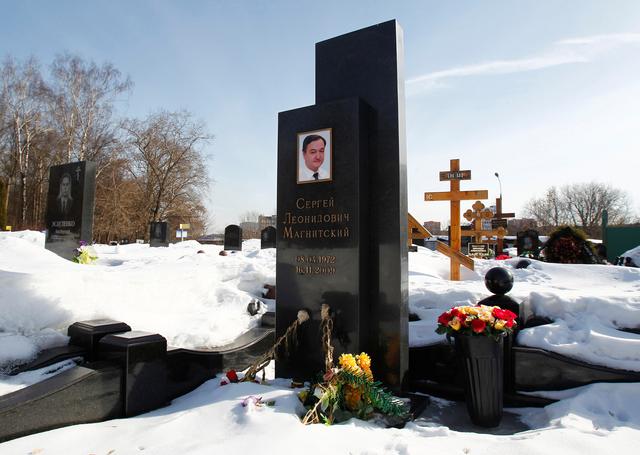
FILE PHOTO: Flowers lie near the grave of lawyer Sergei Magnitsky in the Preobrazhensky cemetery in Moscow March 11, 2013. REUTERS/Mikhail Voskresensky
The United States on Thursday imposed sanctions on a Chechen group and five people, including at least three Russians, over allegations of human rights abuses, including extrajudicial killings and the torture of LGBTI people.
The sanctions against the Terek Special Rapid Response Team in the Chechen Republic and the five were announced by the U.S. Treasury under the Magnitsky Act. They included suspects in the deaths of Russian whistleblower Sergei Magnitsky and Russian opposition leader Boris Nemtsov.
The 2012 Magnitsky Act is named after the 37-year-old Russian auditor and imposes visa bans and asset freezes on officials linked to his death in prison 2009.
Those targeted on Thursday included Elena Anatolievna Trikulya and Gennady Vyacheslavovich Karlov, members of the Russian state’s Investigative Committee, whom the U.S. said “participated in efforts to conceal the legal liability for the detention, abuse, or death” of Magnitsky.
Abuzayed Vismuradov, commander of the Terek Special Rapid Response Team in Chechnya, was accused of “being responsible for extrajudicial killings, torture, or other gross violations of internationally recognized human rights” against those seeking to expose illegal activity by Russian government officials.
The U.S. Treasury said Vismuradov was in charge of an operation that “illegally detained and tortured individuals on the basis of their actual or perceived LGBTI status.” LGBTI is an acronym for lesbian, gay, bisexual, transgender, and intersex.
The Treasury named Sergey Leonidovich Kossiev as being responsible for extrajudicial killings and torture as head of a penal colony in the Republic of Karelia and the fifth person, Ruslan Geremeyev, was accused of acting on behalf of the head of Chechen Republic, Ramzan Kadyrov, in a matter relating to extrajudicial killings and torture.
The Treasury statement said Russian investigators had twice tried to bring charges against Geremeyev as the possible organizer of the 2015 murder of Nemtsov, but were blocked by the head of the Investigative Committee.
Nemtsov, one of President Vladimir Putin’s most vocal critics, was shot and killed near the Kremlin in 2015.
In 2017, a court sentenced a man to 20 years in jail for his murder but Nemtsov’s allies called the investigation a cover-up and said those who ordered the assassination remained at large.
The Russian Embassy in Washington said in a statement that U.S. sanctions under the Magnitsky Act “are at odds with the international law.” It said Russia would respond with “reciprocal measures.”
The Magnitsky sanctions have been a point of tension between Moscow and Washington, which are far apart on a wide range of global issues and U.S. allegations of Russian interference in U.S. elections.
The latest U.S. move follows a frosty visit to Russia this week by U.S. Secretary of State Mike Pompeo who said Washington would brook no interference in the 2020 U.S. presidential election and wanted Moscow to take action to show there would be no repeat of its suspected 2016 meddling.
Magnitsky was arrested and died after discovering a $230 million tax fraud scheme, according to U.S. authorities. His supporters say the Russian state murdered him by denying him adequate medical care after he was imprisoned on tax evasion charges. The Kremlin denies the allegation.
The Treasury statement said officials in Chechnya had launched a series of purges of people they believed to be LGBTI and several were believed to have died as a result.
“They have rounded up dozens of people on these grounds, some of whom have disappeared, with others returned to their families barely alive from beatings and with their captors outing them to families and encouraging the families to carry out so-called honor killings,” the statement said.
Kremlin pledges a response to new U.S. sanctions on Russian individuals
The Kremlin said on Friday it would respond in kind to a new round of U.S. sanctions on Russian nationals, saying its retaliation would be consistent with Russia's national interest.
Russia to take reciprocal measures in response to new US sanctions
The US Treasury's Office of Foreign Assets Control earlier added Chechnya's Terek Special Rapid Response Team and five Russian nationals to the sanctions list.
Russia will take reciprocal measures in response to new US sanctions introduced on the basis of the Magnitsky Act, the Russian Embassy in Washington D.C. said in a statement released on Thursday.
"Washington's new anti-Russian steps are associated with the so-called Magnitsky Act," the embassy said. "They represent an attempt to force unilateral measures of coercion which go against international law and cannot be considered as a civilized way of communication between countries," the embassy added noting that "reciprocal measures will follow."
"When we responded reciprocally before, we always stressed that this is not our choice. We strive for cooperation with the United States in the long term. We are ready for this and think that this is a right choice," the embassy said.
"When we responded reciprocally before, we always stressed that this is not our choice. We strive for cooperation with the United States in the long term. We are ready for this and think that this is a right choice," the embassy said.
"US sanctions against the Terek Special Rapid Response Team from Chechnya reflect either the intention to complicate international cooperation in the fight against terrorism, or the fear of the team's potential to operate in the Arctic. Moreover, such unconstructive decisions clearly go against the positive atmosphere of the recent Russian-US talks in Sochi," the embassy concluded.
The US Treasury's Office of Foreign Assets Control (OFAC) earlier added Chechnya's Terek Special Rapid Response Team and five Russian nationals, including Terek's commander Abuzayed Vismuradov, to the sanctions list on the basis of the Magnitsky Act.
The Sergei Magnitsky Rule of Law Accountability Act was passed by the US Congress and signed by then-President Barack Obama in December 2012. The law particularly specified sanctions against a number of Russian officials, including law enforcement officers, believed by Washington to have played a role in the death of Sergei Magnitsky, an auditor at the Hermitage Capital Management company, who died in a Moscow detention center in November 2009.
The act envisages sanctioning Russian officials whom the US considers to be responsible for human rights violations. It particularly allows the US government to freeze assets and ban visas for officials.
US imposing "sanctions for the sake of sanctions," Russian lawmaker says
The US decision to add Chechnya's Terek Special Rapid Response Team and five Russian nationals to the Magnitsky Act represents "sanctions for the sake of sanctions," chairman of the Russian State Duma's Committee on International Affairs Leonid Slutsky said on Thursday.
"US sanctions against the Terek Special Rapid Response Team are absolutely nonsensical and absurd. It looks like they introduced new blacklists just to maintain the notorious Magnitsky Act," Slutsky said.
He reminded that the Magnitsky Act "marked the beginning of the collapse of reset in Russian-US relations." "As a result, US policies of unwarranted pressure brought mutual dialogue with Russia to the non-existent level. Sanctions are now introduced just for the sake of sanctions, and this has become a special type of political paranoia in the United States," he concluded.

